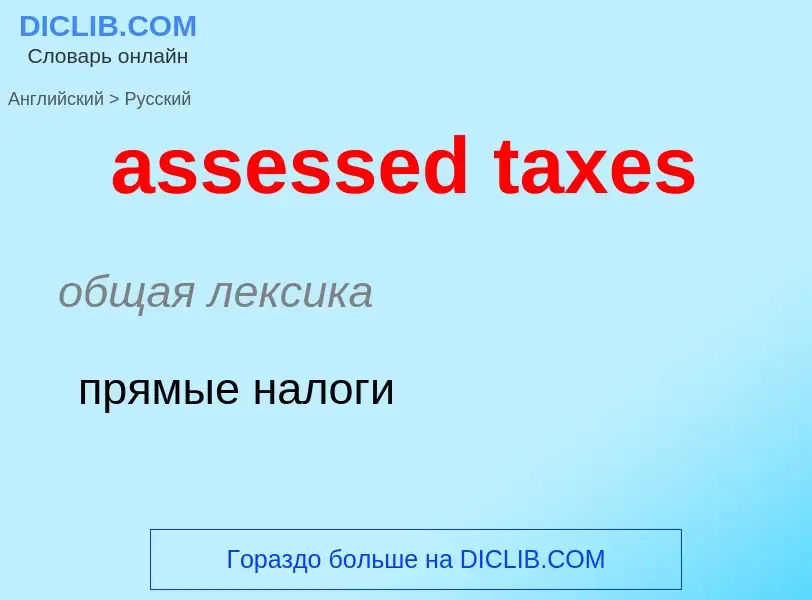Translation and analysis of words by ChatGPT artificial intelligence
On this page you can get a detailed analysis of a word or phrase, produced by the best artificial intelligence technology to date:
- how the word is used
- frequency of use
- it is used more often in oral or written speech
- word translation options
- usage examples (several phrases with translation)
- etymology
assessed taxes - translation to russian
общая лексика
прямые налоги
Definition
Wikipedia
A regressive tax is a tax imposed in such a manner that the tax rate decreases as the amount subject to taxation increases. "Regressive" describes a distribution effect on income or expenditure, referring to the way the rate progresses from high to low, so that the average tax rate exceeds the marginal tax rate. In terms of individual income and wealth, a regressive tax imposes a greater burden (relative to resources) on the poor than on the rich: there is an inverse relationship between the tax rate and the taxpayer's ability to pay, as measured by assets, consumption, or income. These taxes tend to reduce the tax burden of the people with a higher ability to pay, as they shift the relative burden increasingly to those with a lower ability to pay.
The regressivity of a particular tax can also factor the propensity of the taxpayers to engage in the taxed activity relative to their resources (the demographics of the tax base). In other words, if the activity being taxed is more likely to be carried out by the poor and less likely to be carried out by the rich, the tax may be considered regressive. To measure the effect, the income elasticity of the good being taxed as well as the income effect on consumption must be considered. The measure can be applied to individual taxes or to a tax system as a whole; a year, multi-year, or lifetime.
The opposite of a regressive tax is a progressive tax, in which the average tax rate increases as the amount subject to taxation rises. In between is a flat or proportional tax, where the tax rate is fixed as the amount subject to taxation increases.




![Pyramid Age]]) Pyramid Age]])](https://commons.wikimedia.org/wiki/Special:FilePath/Wells egyptian peasants taxes.jpg?width=200)
